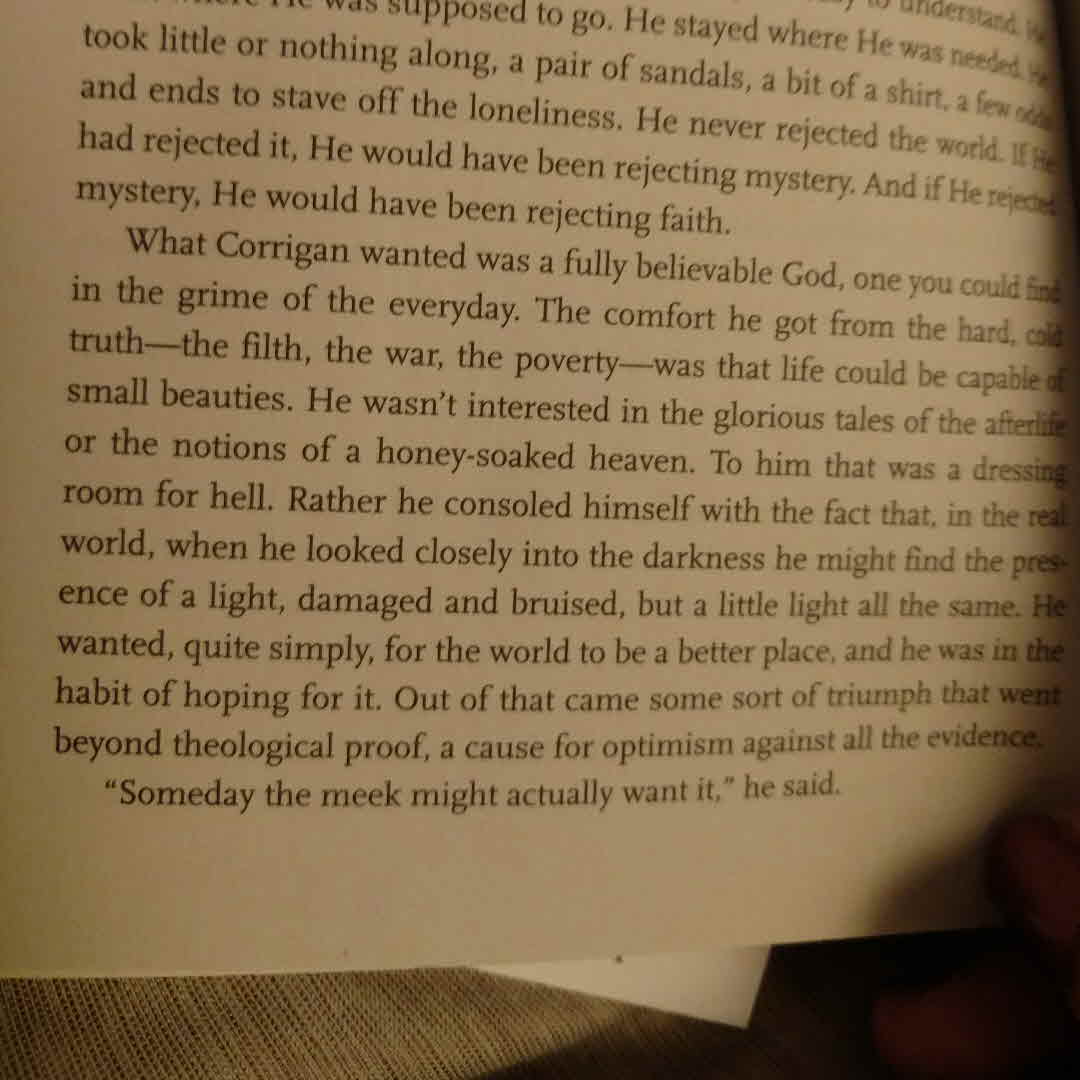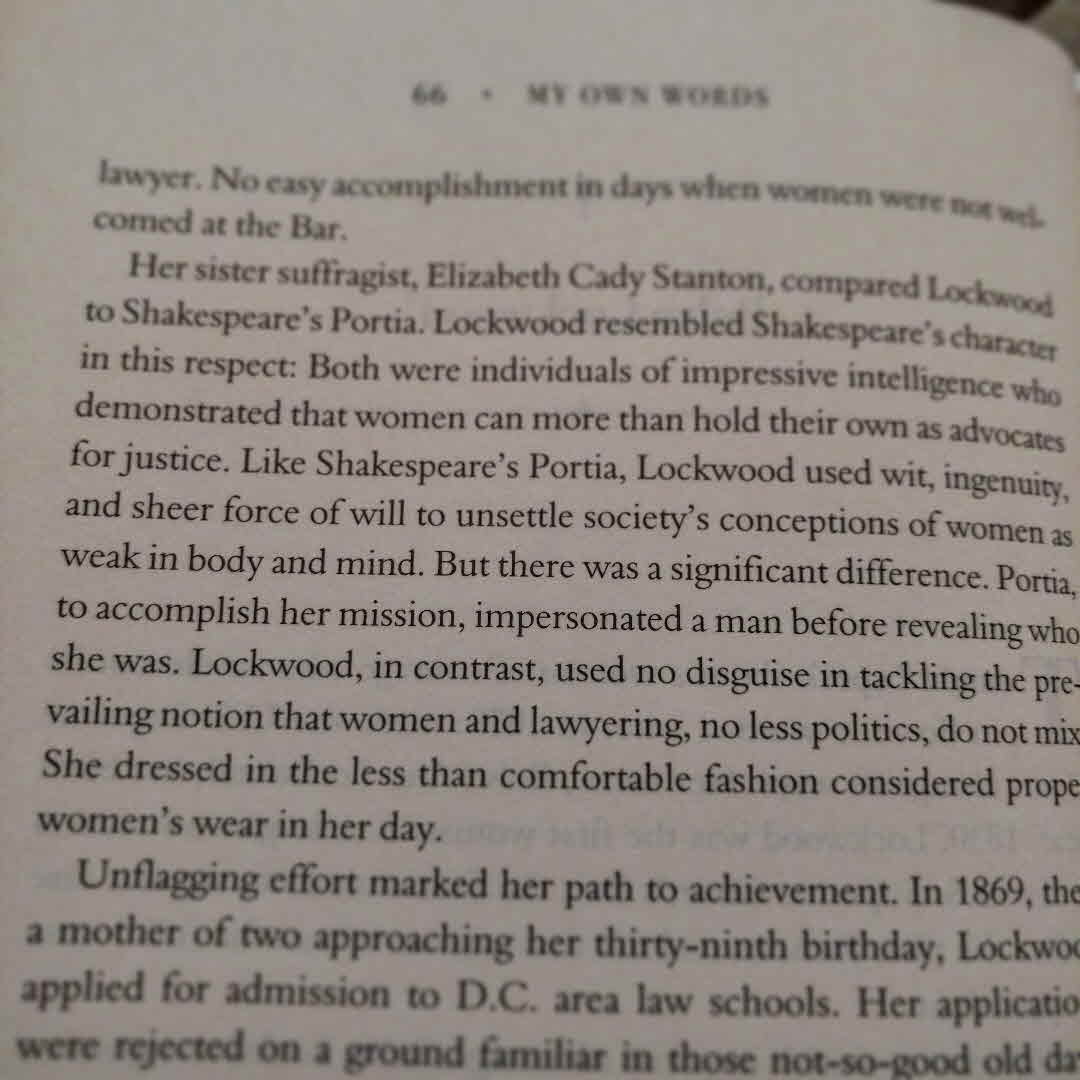
He wanted, quite simply, for the world to be a better place, and he was in the habit of hoping for it. Out of that came some sort of triumph that went beyond theological proof, a cause for optimism against all evidence.

He wanted, quite simply, for the world to be a better place, and he was in the habit of hoping for it. Out of that came some sort of triumph that went beyond theological proof, a cause for optimism against all evidence.

"Like Shakespeare's Portia, Lockwood used wit, ingenuity, and sheer force of will to unsettle society's conceptions of women as weak in body and mind. But there was a significant difference. Portia, to accomplish her mission, impersonated a man before revealing who she was. Lockwood, in contrast, used no disguise in tackling the prevailing notion that women and lawyering, no less politics, do not mix

"Here's the truth-life is catastrophe."
That quotation, about 770 pages in, sums up this beautifully written, appropriately long novel. It's hard to put down, even when you're not sure what the past 50 pages have added to the story. Trust it comes together, but in a satisfyingly messy way. We cannot escape that "life is catastrophe", but luckily, this book is not.
Sidenote: Not sure I've finished a book this long this quickly since Harry Potter.

How can I see so clearly that everything I love or care about is illusion, and yet--for me anyway--all that's worth living for lies in that charm?

"Luck in its darker moods and manifestations...There's a pattern and we're all a part of it. Yet if you scratched very deep at that idea of pattern...you hit an emptiness so dark that it destroyed, categorically, anything you'd ever looked at or thought of as light." -The Goldfinch
Well, there goes my night.

"Who cares? If he is good to you? None of us ever find enough kindness in the world, do we?"